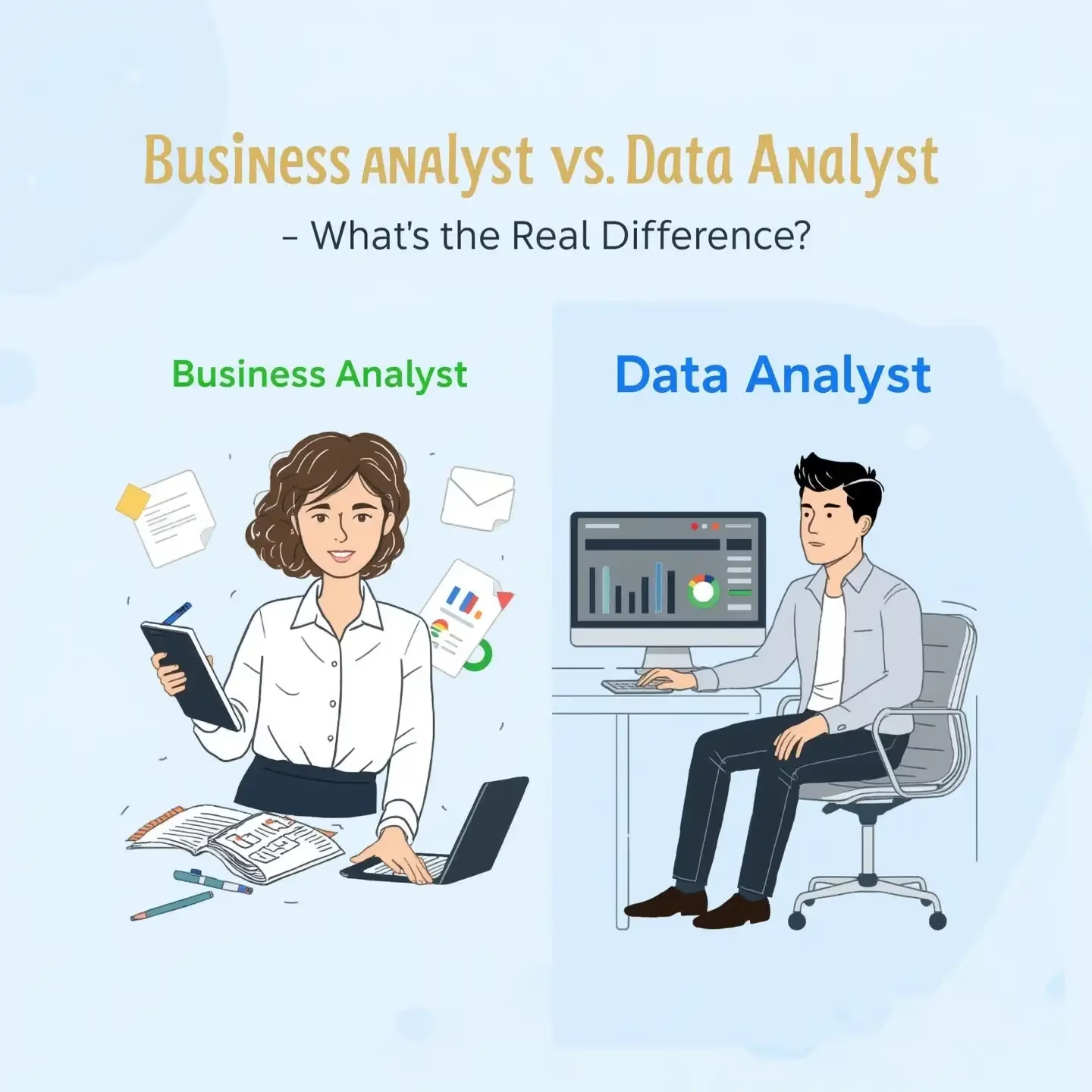
Business Analyst:
A business analyst’s main purpose is to help change and improve businesses by studying and providing solutions. They are focused on enhancing business processes, solutions, and strategies, bridging the gap between stakeholders and technical teams.
Function
Business Analyst
Data Analyst
Business Analyst Skills
Strong communication & stakeholder management
Business process modeling
Requirement gathering and documentation
Knowledge of KPIs and business metrics
Common background business, Economics, Management, or Information Systems
Data Analyst Skills
Strong experience working with data for the purposes of cleaning, aggregation and analysis, Statistical modeling
Visualization & dashboard creation
Programming and querying (Python, SQL etc.)
Appropriate background:
Stats, CS, Math, or Engineering
Business Analyst
Data Analyst
The end goal is the same for business analyst vs data analyst—to put those null hypothesis-smashing insights to work and drive smarter decisions—but those two power players’ approaches, focuses, and skill sets are anything but the same. Business analysts translate needs, define strategies, and direct business improvements; data analysts turn raw numbers into action-driving intelligence. Business analysts/analysts. The distinction seems straightforward.
Quick reminder:
It’s not about what role is better, but what role complements your strengths, interests, and long-term aspirations.
If you’re living in Hyderabad and looking to go into one of these highly in-demand professions, there are some great resources and programs out there. Explore data analyst training in Hyderabad to become an expert in business analysis. Whether you’re starting your career in tech or taking your skills to the next level, Hyderabad has a program for you.
Analytics Benchmark
Analytics benchmark is the Best Microsoft Technologies Training Institute In Hyderabad Provids Online & Classroom Training In Hyderabad and also Across the World by 15+ years of Industry experts.
Contact Us
Address
2nd floor, Balaji Towers, Aster Prime, Hospital street, Kumar Basti, Srinivasa Nagar, Ameerpet, Hyderabad, Telangana 500016.
Phone No:
+91-7799771214 | 91-7799771213
Email:
abtrainingshub@gmail.com